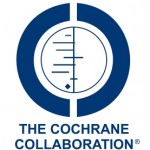
Tooth extraction is probably the most commonly conducted surgical procedure. Teeth are normally extracted because of severe dental caries or periodontal (gum) infection, although they are also removed because they are poorly aligned or developed. To aim of this Cochrane review was to determine the effect of antibiotic prophylaxis on the development of infectious complications following tooth extractions. However, all the trials included in the review related to impacted third molars (wisdom teeth).
The reviewers followed the usually robust Cochrane methodology searching a wide range of databases (Cochrane Oral Health Group’s Trials Register, the Cochrane Central Register of Controlled Trials (CENTRAL), Medline, Embase and LILACS), without language restrictions for randomised double-blind placebo-controlled trials of antibiotic prophylaxis in patients undergoing tooth extraction(s) for any indication. Two review authors independently assessed risk of bias for the included studies and extracted data and the overall evidence quality assessed using the GRADE tool.
- 18 trails (2456 patients) were included
- The estimated reduction in risk of infection (compared to placebo) was 70% (RR 0.29 (95% CI 0.16 to 0.50) P < 0.0001. That is, 12 people (range 10-17) needed to be treated (NNT) with antibiotics to prevent one infection following extraction of impacted wisdom teeth.
- The estimated reduction is risk of dry socket was 38% (RR 0.62 (95% CI 0.41 to 0.95) P = 0.03. [NNT=38 (range24-250)].
- There is some evidence that patients who have prophylactic antibiotics may have less pain overall 7 days after the extraction compared to placebo, which may be a direct result of the lower risk of infection.
- There is no evidence of a difference between antibiotics and placebo in the outcomes of fever, swelling or trismus 7 days after tooth extraction.
- Antibiotics are associated with an increase in generally mild and transient adverse effects compared to placebo (RR 1.98 (95% CI 1.10 to 3.59) P = 0.02). That is for every 21 people (range 8-200) who receive antibiotics, an adverse effect is likely.
The authors concluded
Although general dentists perform dental extractions because of severe dental caries or periodontal infection, there were no trials identified which evaluated the role of antibiotic prophylaxis in this group of patients in this setting. All of the trials included in this review included healthy patients undergoing extraction of impacted third molars, often performed by oral surgeons. There is evidence that prophylactic antibiotics reduce the risk of infection, dry socket and pain following third molar extraction and result in an increase in mild and transient adverse effects. It is unclear whether the evidence in this review is generalisable to those with concomitant illnesses or immunodeficiency, or those undergoing the extraction of teeth due to severe caries or periodontitis. However, patients at a higher risk of infection are more likely to benefit from prophylactic antibiotics, because infections in this group are likely to be more frequent, associated with complications and be more difficult to treat. Due to the increasing prevalence of bacteria which are resistant to treatment by currently available antibiotics, clinicians should consider carefully whether treating 12 healthy patients with antibiotics to prevent one infection is likely to do more harm than good.
Comment
This review provides an excellent summary of the available data and giving a clear estimate for both the reduction of infection and the risk of adverse effects. While the benefit from prophylactic antibiotics appears large the authors highlight in their review that: To prevent 1 infection between 10 and 17 people will require antibiotics, and to prevent a case of dry socket between 24 and 250 people would need to receive antibiotics. They consider that this benefit is not big enough to recommend routine use, because 21 of those prescribed antibiotics would have mild adverse effects and there is also the potential of contributing to the development of bacterial resistance.
The authors also point out that the effects may not be generalizable to those patients having extractions for severe dental caries or periodontal infection, or for patients groups at higher risk of infection as none of the included studies included these groups.
Links
Lodi G, Figini L, Sardella A, Carrassi A, Del Fabbro M, Furness S. Antibiotics to prevent complications following tooth extractions. Cochrane Database of Systematic Reviews 2012, Issue 11. Art. No.: CD003811. DOI:10.1002/14651858.CD003811.pub2.

great even me on the same opinion sir , as i have conducted a study on antibiotic usage following extractions even diabetic patients who are under controlled blood sugar values need no tbe given antibiotics unless needed
[…] Dental Elf -15th Nov 2012 – Moderate evidence that prophylactic antibiotics reduce the risk of… […]
[…] Moderate evidence that prophylactic antibiotics reduce the risk of infection, dry socket and pain fo… […]